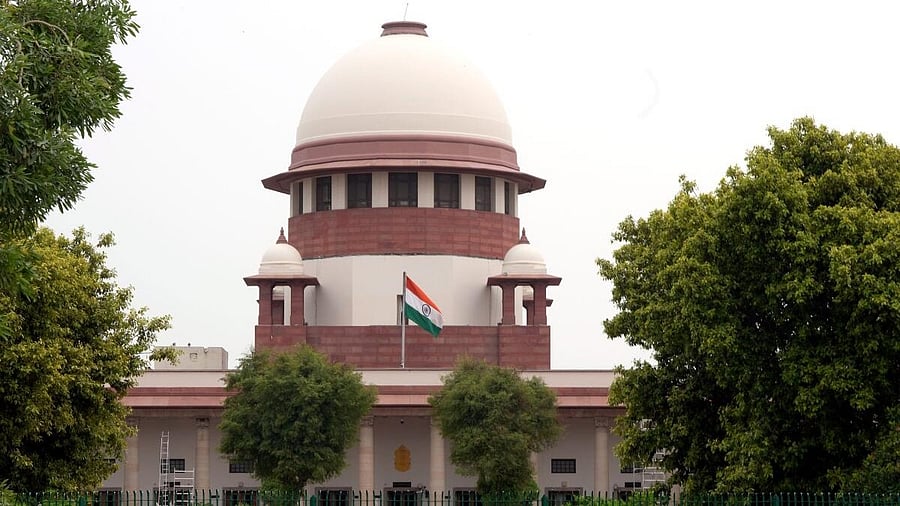
Supreme Court.
Credit: PTI Photo
The Supreme Court has made a welcome order that no fresh suit with regard to the status of a religious place or shrine can be registered or a survey ordered by lower courts till the time the court decides on the validity of the Places of Worship (Special Provisions) Act, 1991. Several claims have been made in the last few years by Hindu organisations and devotees to mosques in different parts of the country, mainly in North India, on the purported ground that they were constructed after demolishing temples.
The Gyanvapi mosque in Varanasi, the Krishna Janmabhoomi in Mathura, and the Shahi Imam Masjid at Sambhal in UP are some of them. Subordinate courts have accepted such petitions and issued orders for surveys to be conducted at the sites. A similar claim was recently made about the famous Sufi darga at Ajmer in Rajasthan. The survey conducted at the Sambal mosque resulted in a law and order situation and led to the killing of five people in police firing. There are questions even about the Taj Mahal.
The Places of Worship Act, which froze the character of a place of worship as it existed on August 15, 1947, should have made these demands and the petitions infructuous. There are about 20 petitions in various courts. Unfortunately, even the Supreme Court did not prevent the survey of the Gyanvapi mosque when the matter came before it.
The then Chief Justice of India (CJI) D Y Chandrachud made the observation that the law did not bar a survey for finding out the nature of a religious place, though it barred change of its character. The observation went against the spirit of the law and was used to order and justify surveys. The aim of such surveys is only to lay claim to ownership of the religious place. The law does not allow conversion of a religious place into another in any situation, and the exemptions mentioned in it are not applicable to any place to which claims have been made.
The Supreme Court, in its Ayodhya judgment, clearly said that the Places of Worship Act is a “legislative instrument designed to protect secular features of Indian polity’’ and imposes on the state a “non-derogable obligation” to enforce commitment to secularism under the Constitution. This is an endorsement and validation of the law which will hopefully stand further judicial scrutiny. It was enacted to ensure that there are no more Babri Masjids in the country. According to reports, there are thousands of mosques whose past is being questioned. That can lead to social disruption and political turmoil of a kind that the country has not seen before.
